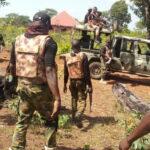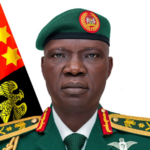Hundreds of children are increasingly suffering from various types of cancer in Nigeria, Daily Trust Saturday investigation revealed.
This has made the burden of childhood cancer a growing source of concern in the country as parents and the victims live in agony.
The World Health Organisation (WHO) says that each year, an estimated 400,000 children and adolescents of 0-19 years old develop cancer globally.
It says the most common types of childhood cancer include leukaemias, brain cancers, lymphomas and solid tumours, such as neuroblastoma and Wilms tumours.
- Female Nigerian celebrities who admitted to undergoing cosmetic surgery
- Why I sent my daughter to Sudanese university – Retired civil servant
We record 40,000 cases yearly – Dr Zainab Bagudu
The founder of Medicaid Cancer Foundation and First Lady of Kebbi State, Dr Zainab-Shinkafi Bagudu, said about 40,000 Nigerian children were diagnosed of different types of childhood cancer every year.
She said diagnosed cases exceeded the estimated number because the cancer burden in the country and globally was under-documented.
She said about 80 per cent of the cases in Nigeria and other low-income countries ended up in deaths, unlike the high-income countries where the cure rate of cancer in children is now about 85 per cent.
The renowned cancer advocate said it was under-documented because of poor diagnosis and low index of suspicion from clinicians and even parents, some of who are unaware that cancer exists in children.
Dr Bagudu said some clinicians tend to treat malaria over and malaria over when children have recurrent fever before thinking of cancer.
She said the gap in childhood cancer between high and low income countries spanned diagnostic skills and facilities, treatment and prognosis, which is as low as 20 per cent in parts of Nigeria.
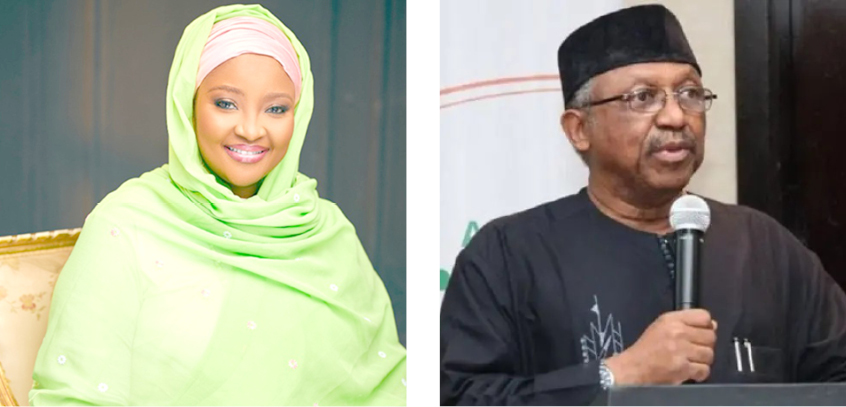
Dr Adewunmi Oyesakin, a consultant paediatrician and Head of Unit, Paediatric Oncology, National Hospital Abuja, said the burden of childhood cancer is high. She said majority of children affected by childhood cancers were in developing countries and sub-Sahara Africa like Nigeria.
She said the National Hospitals, Abuja had been seeing frequent cases of childhood cancer.
“In fact, we diagnose five children with cancer in the last three days, referred to us from Makurdi, Nasarawa and neighbouring states. Right now, we have three children on chemotherapy for leukaemia, not to talk of those that are on treatment for Yolk sac tumors, lymphomas, nephroblastoma, among others.”
She said the hospital had also recently observed more cases of acute lymphoblastic leukaemia (cancer of the blood and bone marrow) among the children being managed for childhood cancers at the hospital.
The expert said some contributory factors to the high prevalence of cases and mortality from childhood cancers in the country were challenges with early diagnosis, prompt treatment and completing the treatment.
She said, “Completing the treatments is a major issue because even after diagnosing the illness, because of the cost implication, we tend to lose them to follow up.”
Dr Oyesakin said some people died before diagnosis because of infections, blood loss and inability to get resuscitated early for those suffering from blood cancers.
She said when parents observe that their children suffer recurrent fever they should see a specialist “so that there will be prompt diagnosis because most of those fevers that are treated over and over again are not really due to malaria or typhoid. But some of them may actually be due to childhood cancer.”
She said childhood cancers were treatable and curable if there were early treatments, resources and completion of treatments.
“I am happy to announce to you that we actually have survivors that have completed our treatments and they are back to school,” she added.
The Nigerian Society for Paediatric Oncology (NISPO) said childhood cancer was increasingly contributing to disease and death in children in Nigeria.
The president of the society, Professor Biobele Brown said, “Unfortunately, many people in the country are not aware that cancer occurs in children, and so, when children develop early symptoms and signs of cancer, many parents often attribute them to mild illnesses and fail to present the cases to the appropriate health facilities until the disease is advanced and difficult to cure.”
The society said a recent study among parents of children with cancer revealed that only 8.1 per cent were aware that cancer occurs in children.
In addition, it said the government of Nigeria paid attention more to cancer in adults and extremely little attention to childhood cancer.
“Therefore, unlike in developed countries where 80 per cent (i.e 8 out of every 10) of children with cancer are cured, the outcome in developing countries like Nigeria is very poor with an estimated average of 10 per cent survival,” she said.
Patients’ experiences
Iliya recalled that his four-year-old son, Muktar, who he lost to retinoblastoma, a form of eye cancer, was very intelligent.
He said, “He was a very smart child. We took him to the hospital when the ailment started but couldn’t afford the costs after he was diagnosed with cancer. We started soliciting funds, and one non-governmental organisation took up his case, but he died before they could get the money for the main treatment.”
A mother who lost her daughter to leukaemia, a form of blood cancer, said children suffering from childhood cancer go through a lot of harrowing experiences.
She said, “The cost of treatment alone is something else. I mean, no matter how buoyant you are, the treatment is still a difficult journey, you cannot have enough.”
She said the experience led her and her family to found the Aisha Abba Abdullahi Memorial Foundation, also called the 3amfoundation.
She said, “So having experienced the harsh realities of living with blood cancer as the primary caregiver, we decided it’s more of a duty on us to create this foundation and see how we can assist people.
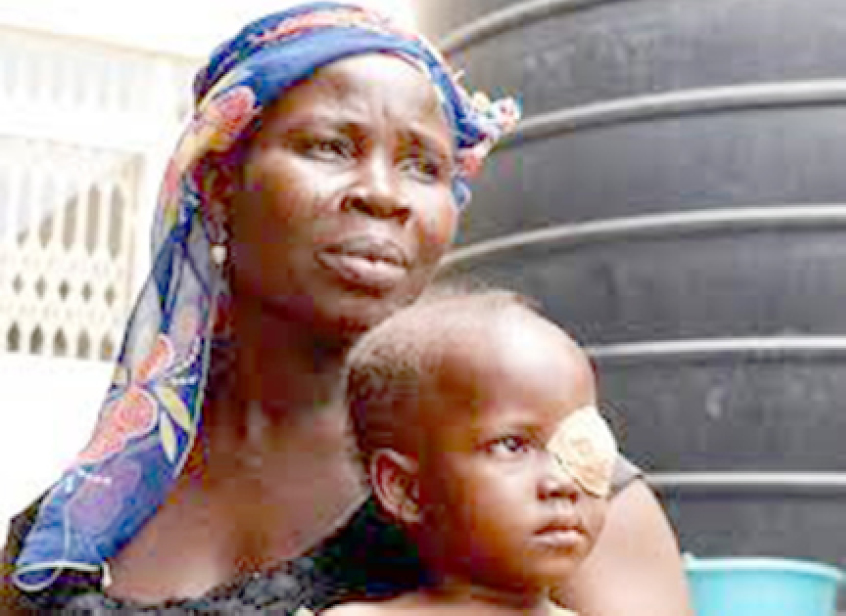
“People go through quite a lot. It is a terrible journey and one cannot go through it alone.
“We try to support patients because a number of patients can maybe start treatment, but at the end of the day, they have to stop because there’s no money for chemotherapy or blood products, so we try to assist them. And then we carry out regular blood donation drives.”
She called for the inclusion of childhood cancer in the National Health Insurance Scheme.
“It should be included in all the health funds. We need so many things to fight this disease. So we will definitely advocate the involvement in all health funds, and then, the reduction of all cost of treatment and availability of medications and equipment to fight the disease.”
She said there was need for support groups for cancer warriors, their families, and that everybody should be involved in the fight against cancer.
She advised parents of children diagnosed with cancer to take things one step at a time.
“Don’t try to process everything at a go. It is a scary journey. Take it one step at a time. Try to find out from doctors the treatment process and options and be involved in all of it. There are a lot of childhood cancer survivors. So there is hope,” she advised.
Poor intervention aggravates problem
Treatment for cancer in Nigeria is paid on an out-of-pocket basis and so unaffordable to many, coupled with the fact that until recently, the country’s National Health Insurance Scheme (NHIS) did not provide for cancer care. Recently, however, some degree of care has been allowed for cancer treatment in the NHIS. However, greater provision is still required to improve our cure rates. Support from non-governmental agencies to support treatment of childhood cancer is also desirable,” Prof Brown said.
Runcie Chidebe, a cancer control advocate and the executive director, Project Pink Blue, said many factors contributed to late presentation of childhood cancer in Nigeria.
“Firstly, awareness of childhood cancer is so low that many parents and health care workers may be treating something else for long before diagnosing a mass.
“Secondly, access to health care is poor. Thirdly, there is very low paediatric oncologist in the country. Project Pink Blue conducted a training funded by US Embassy, Abuja with Fulbright Programme, and we were shocked to see that we had less than 50 paediatric oncologists in the whole of Nigeria,” he said.
He said there was no clinical trial on childhood cancer happening in Nigeria and many low and middle income countries, adding, “We need to be more intentional in improving cancer care and giving our children a second chance when they are diagnosed with cancer.”
The WHO says that unlike cancer in adults, the vast majority of childhood cancers do not have a known cause. “Many studies have sought to identify the causes of childhood cancer, but very few cancers in children are caused by environmental or lifestyle factors.
“Cancer prevention efforts in children should focus on behaviours that will prevent the child from developing preventable cancer as an adult,” it said.
Way forward
Dr Zainab-Shinkafi Bagudu said the way forward on tackling childhood cancer in Nigeria include awareness creation, high index of suspicion by clinicians and for government to train more physicians in that field.
She said, “I think the first thing is that we need to create more awareness that it exists. It is not a fantasy, cancer does happen in children; different types of cancers, lymphomas, leukaemia, are the common ones we see in children. We see Burkitt lymphoma a lot in areas that have malaria endemicity.
“Also, the burden falls on the clinicians to have a high index of suspicion. Government needs to train more physicians in that field. And then they themselves have a duty to always keep it at the back or even front of their mind when they are thinking by the time a child keeps coming back with recurrent fever. And you think that the drug is not resistant, then it is time to look for other things, widen your thoughts.
“When you carry out investigations, a simple blood count can help with diagnose of common cancers.”
She lauded the federal government for the inclusion of paediatric cancers in the national programmes like the cancer health fund and the chemotherapy access programme.
While describing it as one of the major contributions of the federal government to cancer, she said cancer advocates were successful in the advocacy for the inclusion of child hood cancer in the list of beneficiaries of these programmes.
Prof Biobele Brown, the president of the Nigerian Society for Paediatric Oncology (NISPO), said to reduce disparities and inequities in cancer health on the international and local stages, “we recommend a joint effort between the government and private sectors to pay more attention in creation of awareness, screening for early detection, and the need for early presentation to specialist health facilities of children with cancer.
“There is also need for better funding of childhood cancer, including provision of more modern diagnostic facilities, expansion of the scope of funding through the NHIS, establishment of specific childhood cancer institutes or treatment centres as it occurs in other African countries, expansion of the scope of coverage by the NHIS and free treatment for children.
“Indeed, survival of childhood cancer is higher than that of adult cancer worldwide and provides a leverage on which funding of children’s treatment should be prioritised.”
The minister of health, Dr Osagie Ehanire said prevention was a very important strategy in cancer control for adults and children since treatment is very expensive.
He said the federal government was making efforts and working in collaboration with development partners to improve cancer services, as well as comprehensive treatment for childhood cancers.
The WHO says because it is generally not possible to prevent cancer in children, the most effective strategy to reduce the burden of cancer in children and improve outcomes is to focus on a prompt, correct diagnosis followed by effective, evidence-based therapy with tailored supportive care.
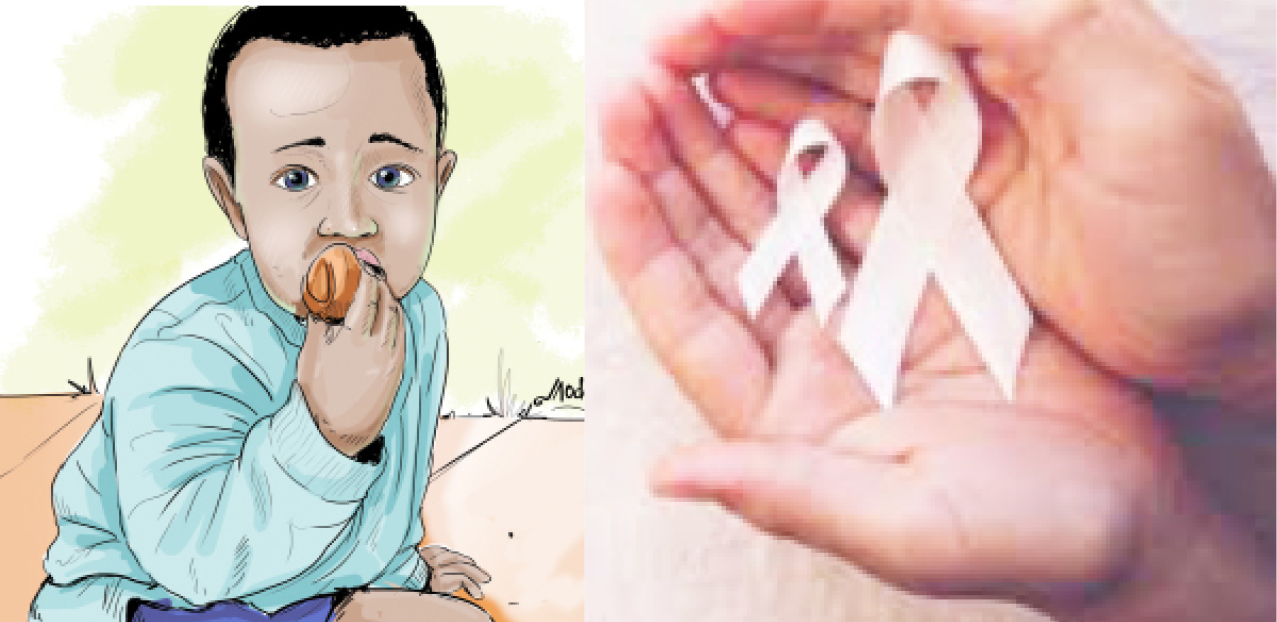
 Join Daily Trust WhatsApp Community For Quick Access To News and Happenings Around You.
Join Daily Trust WhatsApp Community For Quick Access To News and Happenings Around You.